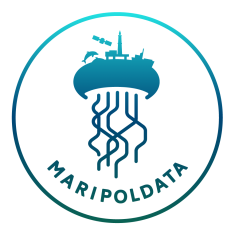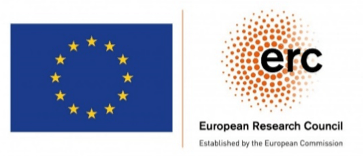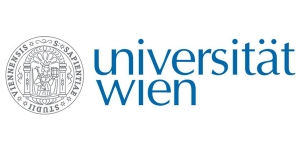Does COVID-19 pave the way for digital diplomacy? Some insights from studying marine biodiversity negotiations
For more than a decade, governments have been trying to agree on the cornerstones of a new international instrument to protect marine biodiversity beyond national jurisdiction (BBNJ). In 2020, the international community was close to concluding negotiations on a new treaty at its fourth and meant to be the final Intergovernmental Conference (IGC4) scheduled for the end of March, when COVID-19 measures made it impossible to continue in-person formal international negotiations in the New York headquarters.
A survey to respond to the COVID-19 impact on our research
As researchers studying the BBNJ process “on-site”, we learned from the postponement of IGC 4 only a few weeks before the actual event took place. Not knowing how long the COVID-19 pandemic would continue to threaten our lives- and certainly not assuming that it would master our world for more than a year- I thought about possibilities to study the process further and find out how multilateral diplomacy responds to such a crisis.
During these early days of COVID-19, when the national lockdowns became the “new normal” in all parts of the world, I developed the idea of an online survey to reach out to diplomats and other stakeholders engaged in the BBNJ process. I intended the survey to be both a route out of the impasse of a disappearing object of research and a project that the whole MARIPOLDATA team would be engaged with; a measure which I hoped would enable us to explore new ways of working collectively during the first phase of home office, which was entirely new and challenging for us.
When we started to discuss ideas and draft the survey, we noticed many scholars’ rush to use survey methods to reach out to all kinds of audiences and target groups to assess the impact of COVID-19 on our everyday lives. Would it be ethical to ask people during times of crisis to participate in our research, and would the BBNJ community welcome our work? When noticing that after a first stage of shock, several NGOs and scientists started to launch online webinars and circulate BBNJ related contents, I was reassured that there was enough momentum for initiatives seeking to keep the BBNJ treaty negotiations high on the political and public agenda. Many people interested in the BBNJ process seemed to use the additional time released by the global lockdowns to further engage in BBNJ related issues by diving deeper into the different package elements of the treaty and engaging in debates outside of the negotiation room.
Will digital diplomacy become the new normal?
In order to capture these activities and how they may affect the future agreement, we designed our survey around our research interest in understanding changing communication patterns and the potential of online formats for state and non-state interaction. Furthermore, it was our ambition to contribute to maintaining momentum by widely disseminating the survey and selecting ideas on how to move on with the BBNJ process despite the pandemic. Our online survey was run in May 2020, accessed by 709 persons, and completed by 105 respondents, many of them participating in the negotiations as national delegates or non-state observers.
Our results suggest that the effects of online tools on participation and inclusiveness appear to determine how actors perceive virtual arrangements’ suitability to continue formal negotiations of any sort online. When asked whether online negotiations made the BBNJ process more inclusive, state actors and nonstate actors responded quite differently. State respondents—who tended to answer no—argued that the process was “already quite” or “highly” inclusive. Nonstate respondents drew a different picture, pointing to the challenges of physically attending IGCs. Some mentioned that attending online negotiations may be cheaper and less time consuming: They also pointed to groups that might benefit, including delegations from developing countries, local and Indigenous peoples, and marginalized communities with limited resources (Vadrot et al. 2021, p. 9).
Need for new methodologies and concepts
We also learned about several online initiatives taking place, including the “High Seas Treaty Dialogues” organized by an alliance of ocean-related NGOs supported by the governments of Belgium, Costa Rica, and Monaco. I was lucky to participate in these talks. When observing the interaction between participants in the online room, I quickly noticed the need to think more carefully about the potential of online formats in the context of multilateral negotiations, the limitations that these tools have, and the need to study further the role of digital tools in international negotiation settings and how it would affect (digital) diplomacy in the future. While the broad range of online initiatives and high participation by states is a clear indicator for the commitment to both a new treaty to protect marine biodiversity and multilateralism as a way to negotiate environmental protection at the international scale, current digital diplomatic efforts are still not designed for the purpose of treaty making.
Still, online dialogues already carry meaning because they are built on “old” practices of engaging in the diplomatic realm while enacting new practices online. Hence, will we see extended use of digital tools in environmental negotiations after COVID-19 has passed? What will be the impact on power constellations, inclusiveness, and trust relations that many respondents of our survey view to be the main reason why digital diplomacy will not become the new normal. How can we make sense of the different digital forms of interaction among states, including the virtual BBNJ intersessional work that uses MS Team and Webex to allow informal exchange among delegates in preparation of IGC 4? Can we conceptualize these forms of interaction in terms of digital diplomacy, and if yes, how can we study such digital diplomatic practices in the future?
One route that we explore in our recently published research note in Global Environmental Politics, where we also summarize our survey’s key results, is to adapt the methodology of digital ethnography to the negotiation site’s specific needs. As scholars interested in the role of international negotiations for protecting our environment, we need to be prepared to adapt our concepts and methods to capture continuities and disruptions in global environmental politics in a post-COVID world. It remains to be seen whether and how digital practices will transform multilateral diplomacy and environmental agreement making in the future.
For more information on the survey study, please see https://www.maripoldata.eu/research/#survey
To access our publication “Marine Biodiversity Negotiations During COVID-19: A New Role for Digital Diplomacy?” please go to https://doi.org/10.1162/glep_a_00605
To access the full report of our study results, please go to https://www.maripoldata.eu/wp-content/uploads/2021/03/MARIPOLDATA_Special_Report_COVID-19-and-the-BBNJ-negotiations_March_2021.pdf


